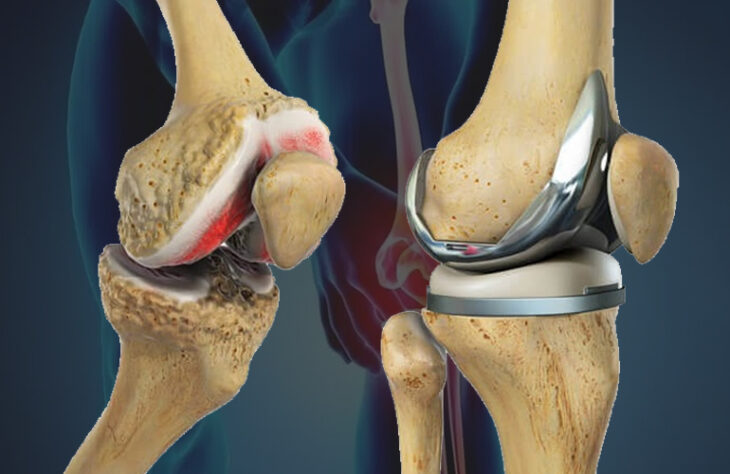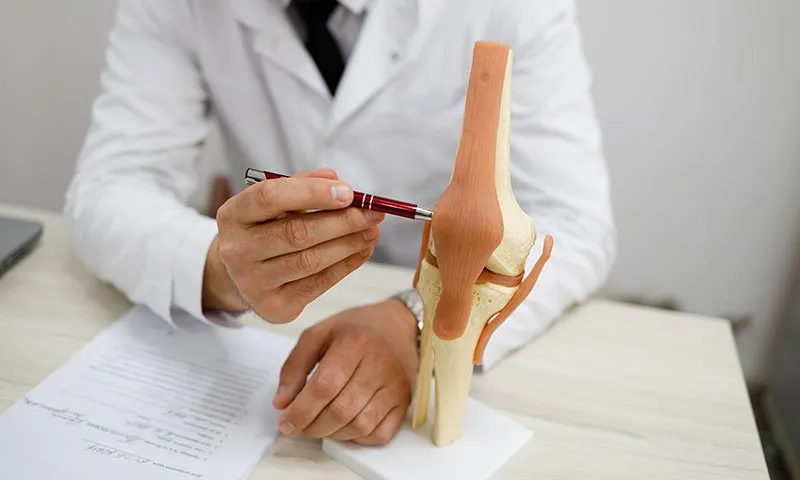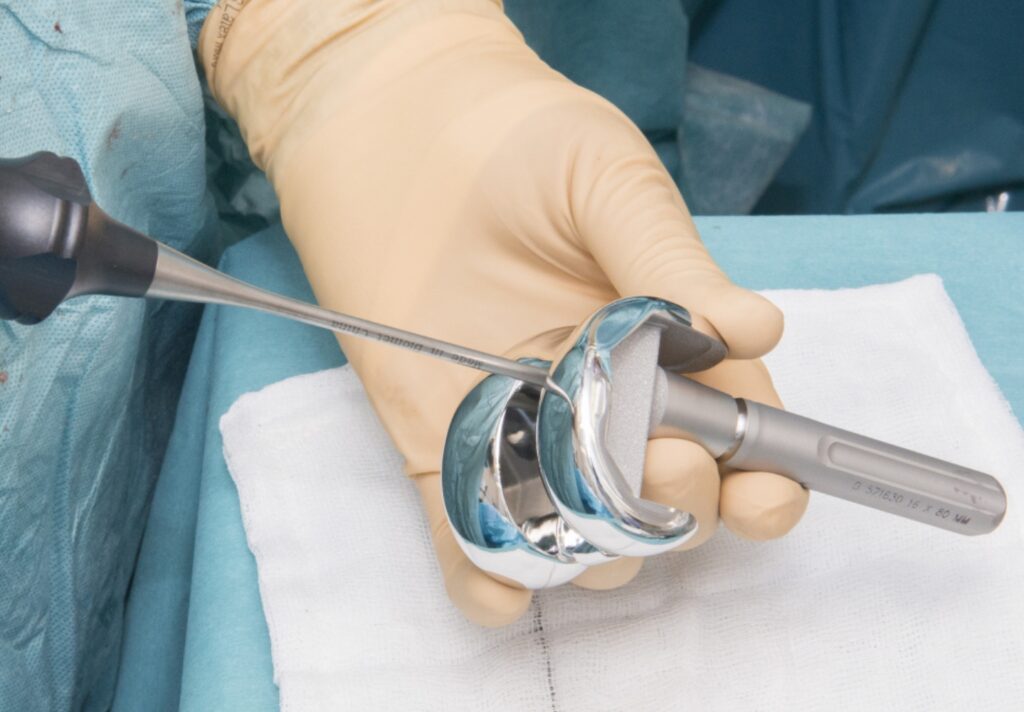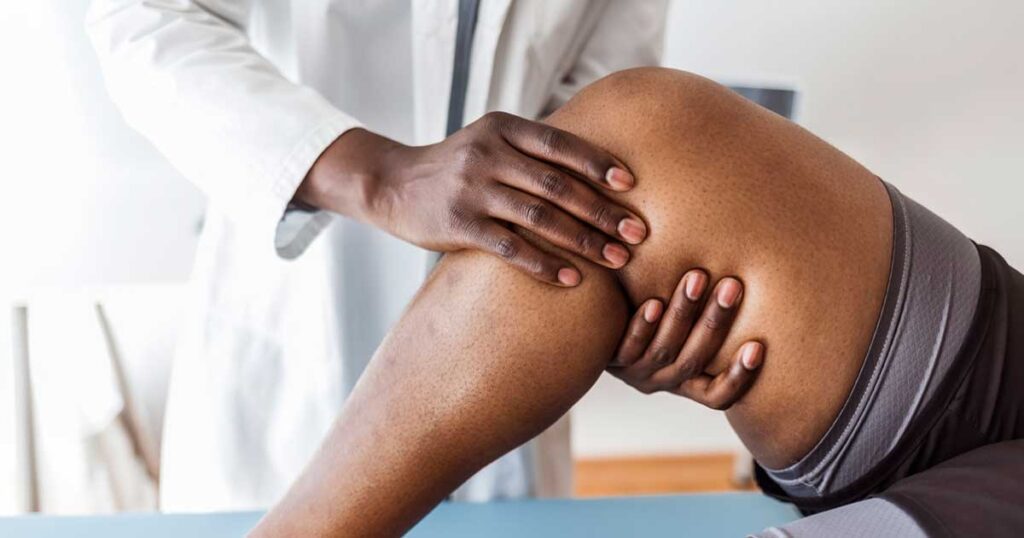
Preparing for Knee Replacement Surgery
Prepare for knee replacement surgery with essential tips on exercises, diet, and weight management. Learn the benefits of surgery abroad, including cost savings.
Knee replacement surgery is a common procedure for people with degenerative joint disease. Often performed in older individuals, it restores knee function by replacing the damaged knee joint with an artificial counterpart.
Preparing for this surgery can reduce postoperative complications, improve outcomes, and ensure the surgery proceeds with minimal risks. Indeed, although knee surgery is routine and usually successful, it’s still an invasive procedure. But with a few lifestyle interventions and a bit of planning, you can further decrease the potential risks and have a more pleasant stay.
Such preparations are critical if you’re considering knee replacement surgery abroad. While many overseas countries, like Lithuania, boast better outcomes at lower prices, the right preparation ensures everything goes smoothly.
In this guide:
- What is Knee Replacement Surgery?
- How to Prepare for Knee Replacement Surgery
- Undergoing Knee Replacement Surgery Abroad

What is Knee Replacement Surgery?
Knee replacement surgery, also known as knee arthroplasty, is a surgical procedure where a damaged or diseased knee joint is removed and replaced with an artificial joint. Usually, the surgery is reserved as a final option for people with severe knee pain or mobility issues – for example, chronic osteoarthritis, gout, or injury.
The procedure aims to alleviate pain, restore knee function, and improve the patient’s quality of life. To achieve this, the surgeons will remove the damaged portions of the knee joint (either partially or totally) and implant an artificial joint made of metal and plastic, which mimics the knee’s movement.
How to Prepare for Knee Replacement Surgery
Before you undergo the surgery, speak to your doctor about how you can prepare. Improving your overall health, attending the pre-admission appointment, and planning for your recovery at home are all important steps in the process. Follow the advice listed below to ensure the best outcome:

Lifestyle Preparations
Surgery carries risks. Even with the latest medical technology, anaesthetics and operations still carry a small risk to patients. Although this is relatively minor, consider the following lifestyle changes:
- Pre-Surgery Exercises: Engage in specific exercises recommended by your physiotherapist to strengthen the muscles around your knee. This can include low-impact activities like swimming, cycling, and walking, which enhance joint flexibility and aid in a quicker recovery post-surgery.
- Post-Surgery Exercises: After the surgery, adhere to a tailored exercise regimen designed by your healthcare provider. This typically includes gentle stretching, strengthening exercises, and gradually increasing your activity level to restore knee function and mobility.
- Stopping Smoking: Quit smoking well in advance of your surgery. Smoking can impede blood flow, delay healing, and increase the risk of complications during and after surgery.
- Healthy Diet: Adopt a nutritious diet rich in vitamins, minerals, and antioxidants to support healing and overall health. Focus on consuming a variety of fruits, vegetables, whole grains, lean proteins, and healthy fats.
- Weight Management: Achieve and maintain a healthy weight to reduce the stress on your knees. Being overweight can slow down recovery and increase the risk of complications. Consult with a dietitian or a healthcare provider to create a weight loss plan if necessary.
Waiting lists for knee surgery in Ireland can be long. Whether you choose to stay home or go abroad, following this advice can help your recovery after surgery.
Pre-Admission Clinic
Depending on whether you opt for knee replacement surgery abroad or at home, you will need to undergo a medical examination prior to the operation. If you choose to come to Kardiolita Hospital, we will perform this check upon your arrival.
During this preliminary check, you may undergo routine blood tests, check your blood pressure, and discuss the procedure with your surgeon. The surgical team are available to answer any of your questions about the operation and your recovery afterwards.
Prepare for Recovering at Home
It’s normal to spend up to a week in hospital recovery from your operation. The surgical team and other related professionals will be keen to begin postoperative exercises immediately. The sooner you start your recovery, the greater the outcomes.
When you return home, it’s sensible to have some arrangements in place. You may want to consider:
- Seek support for daily tasks at home, as you may need help with activities during your recovery period.
- Organise your living space so that frequently used items are within easy reach, minimising the need to bend or stretch.
- Prepare and store meals in the freezer to simplify mealtime during your recovery when cooking might be challenging.
- Plan for alternate transportation options, as you cannot drive for several weeks following your surgery.
- Discuss your surgery and recovery timeline with your employer to establish a plan for your absence and gradual return to work.
Such preparations are complicated if you choose to go abroad. However, with the right advice, it can be a more successful (and affordable) outcome.

Undergoing Knee Replacement Surgery Abroad
Going abroad may seem like an additional challenge during your knee replacement surgery. However, with faster waiting times, more affordable prices, and even better outcomes, the benefits far outweigh the costs.
Regardless, some additional planning is required. As you prepare for your knee replacement surgery abroad, we recommend you complete these steps:
- Consider the language barrier; ensure you can access interpreters or bilingual medical staff to avoid miscommunications.
- Understand the costs involved, including the surgery, hospital stay, medication, and any unforeseen expenses.
- Check your insurance coverage or the availability of medical tourism insurance packages.
- Plan for a sufficient recovery period in the country after surgery, including postoperative care and initial rehabilitation.
- Arrange for support and assistance during your stay, including transportation and accommodation.
- Be aware of the risks of travelling soon after surgery, such as blood clots or complications, and plan your return journey accordingly.
- Prepare for follow-up care upon returning home, ensuring continuity of care and successful rehabilitation.
Kardiolita Hospital is a premier orthopaedic facility that performs hundreds of successful knee replacements annually. Compared to the knee surgery price in Ireland, our fees are a tenth of the cost. With an impressive track record and a seasoned team of surgeons, we are the gold standard in knee replacements.
Learn more about our facilities and procedures and send us an enquiry form to register your interest.